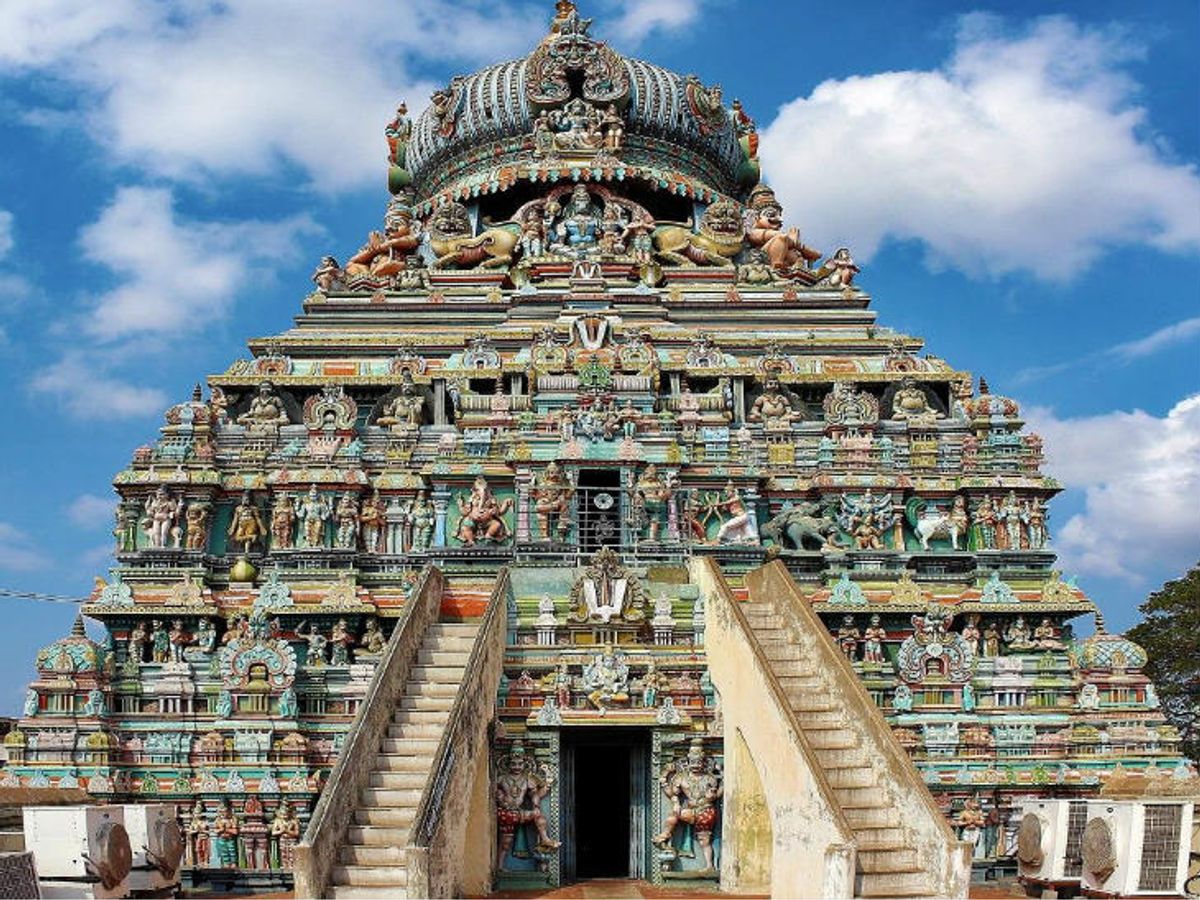


Koodal Azhagar Temple
Koodal Azhagar
Temple in Madurai, is dedicated to Bhagwan Vishnu. Constructed in the Dravidian style of
architecture, it is
one of the 108 Divya
Desams dedicated
to Vishnu, who is worshipped as Viyooga Sundarrajan, and his consort Lakshmi as Mathuravalli.
A
granite wall surrounds the temple, enclosing all its shrines. The temple has a
five-tiered rajagopuram, the gateway tower. The temple is originally believed to be
built by the Pandyas, with later additions by the Vijayanagar Empire and Madurai Nayaks kings who commissioned pillared halls and major
shrines of the temple during the 16th century.
The central shrine has an elevated structure and houses the
images of the presiding deity, Koodal Aḻagar, in three forms, namely sitting,
standing and reclining postures. The image made of granite is sported in
sitting posture and 6 ft (1.8 m) tall. The images of Sridevi
and Bhudevi are present in either sides of Koodal Aḻagar. The vimana,
the shrine over the sanctum is Ashtanga in architecture, which has eight parts.
The outer parts of the vimana has stucco images of sages, Dashavtaram, Bhudevi and Varaha, Lakshmi
Narsimha, Lakshmi Narayana and Narayanmurthy. The vimana is believed to be
the work of Vishwakarma, the divine architect. The shadow of the vimana
does not fall on the ground.
The place is mentioned to be significant during four ages
namely, Satya Yug, Treta Yug, Dvapar Yug and Kali Yug. The
temple has Navagrahas, the nine planetary deities, which are otherwise
found only in Shiva temples. It indicates Vaishnavite cultures during
the medieval period.
Historians
are of the opinion that Koodal Aḻagar temple finds mention in Sangam
literature (3 century BCE) in works like Madurai Kanchi by Mangudi
Satyavrata,
a ruler of Madurai was a staunch devotee of Vishnu. It is believed that once
Vishnu came out of the river Krithimala as a fish to teach Vedas to
the ruler. From then on, the Pandavas started having fish as the
symbol of the kingdom.
The
fourteen day annual Brahmotsavam during the Tamil month of Vaikasi (May
- June) is the most prominent festival of the temple. The festive images of the
temple are brought in chariot round the streets of the temple in various mounts
during all the fourteen days.

.jpg)





